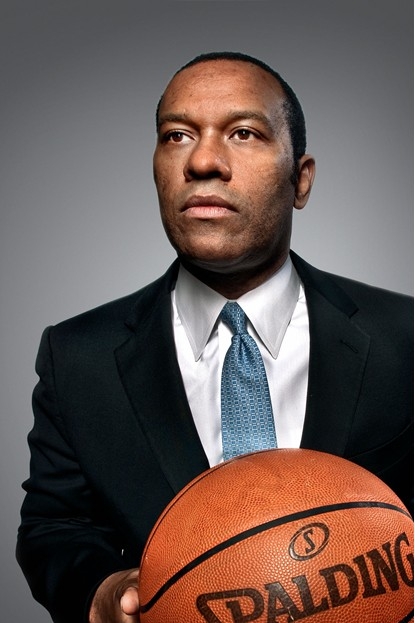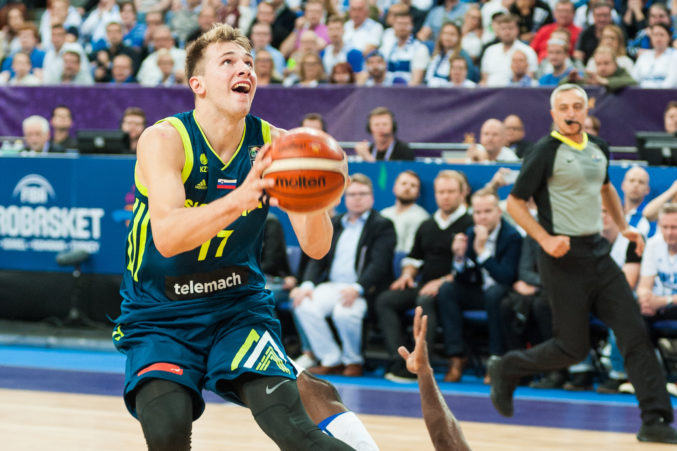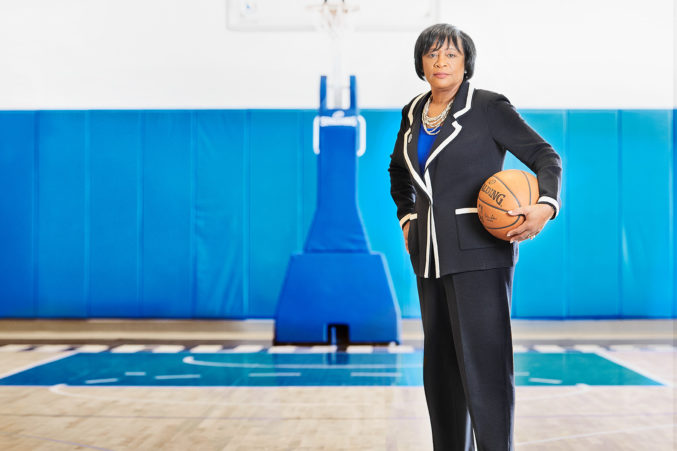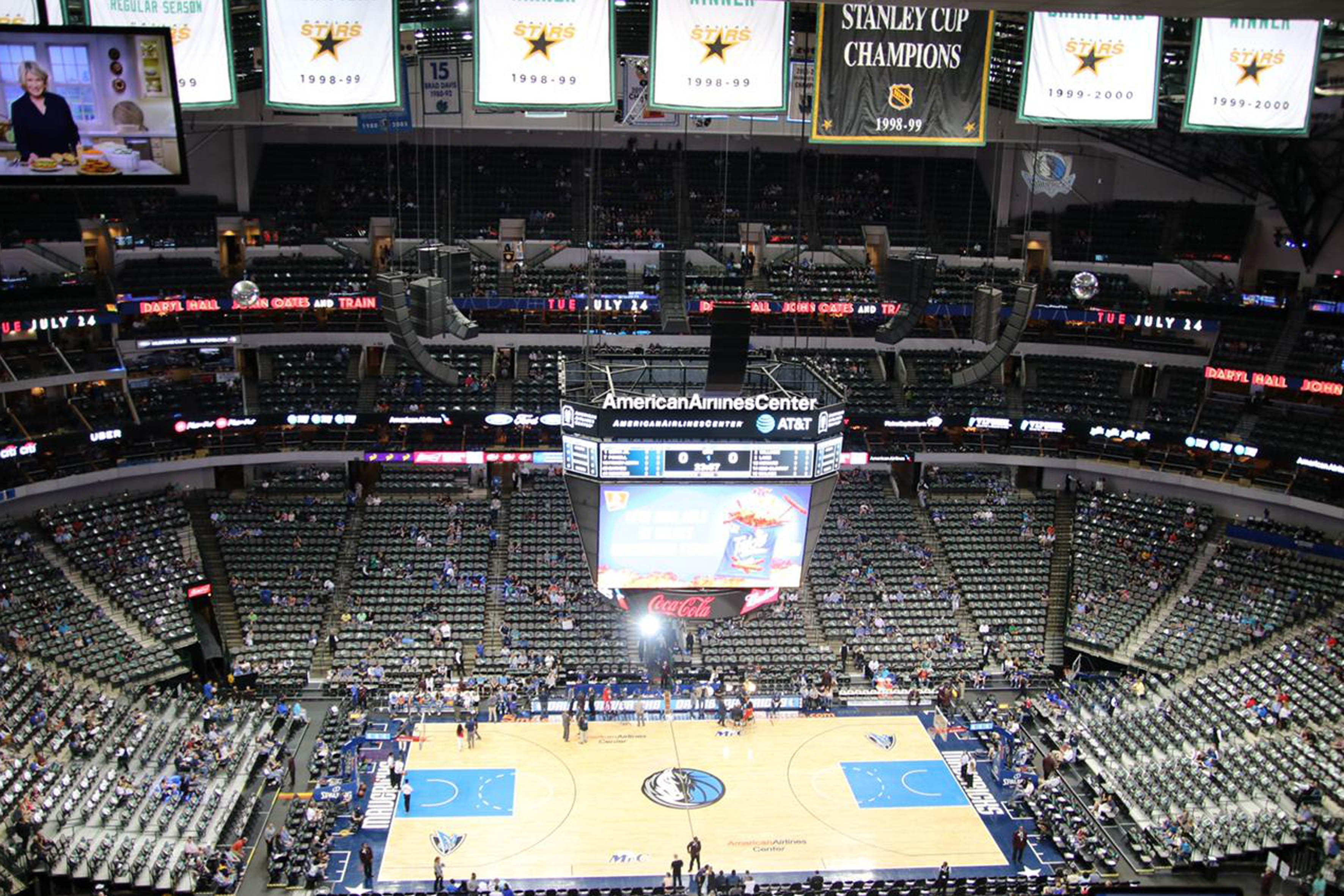As the press conferences for the Dallas Mavericks’ annual media day were set to begin on Friday afternoon, CEOs and leaders of local companies and nonprofits and universities were scattered among members of the press. They represented the newly formed, 27-person Dallas Mavericks Advisory Council, co-chaired by former Dallas Police Chief David Brown and Katie Edwards, the Mavericks’ senior director of communications.
Most of them sat patiently, seemingly excited to be in an unfamiliar environment, almost as if gifted tickets to a Hollywood movie premier. They include folks like Bob Mong, the president of UNT Dallas, and Jan Langbein, the CEO of the Genesis Women’s Shelter.
The makeup of the council itself was a reminder of the ethical and institutional failures in the organization’s recent past, factors which beget its creation. “We are here to observe,” Edwards said to the media and her fellow board members just before the press conferences started.
The Mavericks are recovering from a disgraceful public scandal at the exact moment when their on-court product is likely on the verge of an exciting turning point. Those are two vastly different dynamics that have almost nothing in common with each other, but media day was a reminder that they exist on not-so-distant planes. This is a professional sports organization with a lot to reckon with and a professional sports team with a lot of promise. Those aren’t equally important, but they are equally true.
Two days before media day, the results of the team’s harassment investigation was made public. It substantiated numerous allegations of workplace misconduct that took place over the past two decades, the vast majority of which happened through Mark Cuban’s tenure as owner. (Cuban said he was unaware that Ussery was investigated by the team for sexual harassment in 1998.)

The 43-page report cited incidents of grossly inappropriate behavior toward women ranging from comments to forceful, unwanted kissing to watching pornography in plain sight. The former president and CEO of the Mavericks, Terdema Ussery, was a serial harasser; the report found evidence that he harassed at least 15 employees. The team’s in-house writer, Earl K. Sneed, was not fired despite two incidences of attacking two of his significant others, one of whom was also a Mavericks’ employee. A top-performing salesman often watched pornography on his work computer and once allowed a used condom to slip out of his pantleg and onto the floor. This behavior was protected by a human resources head named Buddy Pittman, who bullied employees who reported the misconduct.
The NBA chose not to apply a basketball-related penalty like draft picks, as almost everything found in the investigation occurred on the business side. On Wednesday Mavericks owner Mark Cuban announced a $10 million donation to various women’s organizations, four times the maximum amount the NBA can fine an owner.
Mavericks coach Rick Carlisle began his press conference with a statement about the scandal. “I am in awe of the women that have worked in this organization over the past twenty years,” Carlisle said. “I’m inspired by the victims who have had the courage to come forward and tell their stories to ensure an accurate investigation.”
The press conferences were conducted in a plain interview room of the American Airlines Center, where a podium was set up in front of rows of folding chairs and video cameras. Each player, escorted by a different public relations member, answered a barrage of mostly unrelated questions to the best of their abilities, seemingly happy for a break from the countless photographs they have to freeze for in faux-basketball poses that will turn into future bus ads for season ticket holders. On media day, the players are essentially patient sheep, being herded from station to station for mindless tasks. Stand here. Answer these questions. Hold this basketball. Say ‘Time to get loud Mavs Fans’ into this camera.
The Mavericks, a team that had the fourth fewest wins in the NBA last year, are soon to kick off a season in which drastic on-court improvement is possible. They are introducing Luka Doncic, a European rookie they hope to be the franchise’s next cornerstone, to pair with 20-year-old point guard Dennis Smith Jr. and newly acquired center DeAndre Jordan. In a vacuum, this is a fresh start for a team that has trended downward since winning a championship in 2011. Fans, meanwhile, face the dilemma of extrapolating optimism amid a scandal that is too troubling to quickly move on from.

Doncic, a 19-year-old Slovenian who speaks four languages fluently, was the third overall pick in the draft and is the most heralded European prospect the NBA has ever seen, including Dirk Nowitzki. Players spent a decent portion of media day gleefully sharing tidbits of playing with Doncic in unofficial scrimmages. The flashy potential star wasn’t even alive for Nowitzki’s rookie year 21 years ago. On Friday, Carlisle said this may possibly be Nowitzki’s final season, claiming that Nowitzki won’t make that announcement because he doesn’t want a farewell tour.
“This is one of the most amazing athletes in sports history,” Carlisle added for effect.
Nowitzki’s reputation as an athlete and a member of the Dallas community is unassailable. You’d be hard-pressed to find a media member or employee, male or female, who has anything but gushing praise of his or her interactions with Nowitzki. Last February he found out that rampant misconduct was taking place for most of the 20 years he’s been employed. “You go through the emotions of being disappointed and sad and mad that all of this stuff was happening in your franchise,” Nowitizki said, adding that he hoped good would come out of the issues being brought to light.
Nowitzki certainly wasn’t named as a perpetrator in the investigation. No players were. And victims in the original Sports Illustrated report went so far as to suggest the locker room was like a refuge. “I had hundreds of interactions with players and never once had an issue,” a female staffer told SI. “My anxiety would go down dealing with players; it would go up when I got to my desk.” And yet players, even ones new to the team, are asked to comment on the findings of the investigation.
Harrison Barnes joined the Mavericks in 2016 and has made strides in that time to not only endear himself to Mavericks’ employees—he has regularly surprised the staff by catering lunch for them—but also has emerged as an asset to the city of Dallas. Friday he talked about his collaboration with former Dallas Police Chief Brown to create a nonprofit camp, “so the kids in the community have a relationship with the local police officers outside of a negative incident.”
He called the results of the investigation “obviously disappointing.” DeAndre Jordan, who signed with Dallas last July, said, “There is obviously no place in work or home or any situation for emotional, sexual, [or] physical abuse. We all know how important that is. There’s no place for that anywhere.”
That’s not to build up any Dallas Mavericks player as infallible, and the fact that they seem to be of a group of generally decent men is not the takeaway. It points to a larger institutional problem in the American workforce where men in high-powered jobs sit in desks far behind the public curtain and abuse the privilege that their positions afford them. The players make up a sliver—less than 10 percent—of the organization’s employees, even if they are the most famous and highest paid. On Friday, they were compelled to discuss the tumor that had grown in the business office, away from the court and their locker room.
Cuban was not named as an offender of misconduct, but the report did call him out for his leadership failures. The day the results of the investigation were released Cuban went on ESPN’s The Jump to address the findings. He apologized to the victims and their families, and appeared as contrite as one should in such circumstances. Still, his best defense was ignorance, claiming that he went to nearly every practice and knew every player’s salary in the league, while barely stepping foot on the other side of the organization. “If I was in our business office five times in 15 years, that was a lot,” he told ESPN’s Rachel Nichols. “It’s embarrassing to say there were people I hadn’t met and hadn’t talked to.”
Cuban’s explanation paints him as a tech billionaire who simply has the money to play the real-life version of fantasy basketball, while his public persona has always propped him up as an entrepreneurial icon who could host a master class on business prowess. A complete and utter lack of awareness of the toxicity in your company’s business operations is a symptom of bad business acumen. The report shows that Cuban was aware of Sneed’s assault allegations and the pornographic proclivities of Chris Hyde, the salesman. Cuban allowed both to keep their jobs.

Two decades of enabling sexual harassment and assault requires a lot of goodwill to be earned. Maverick fans are forced to question what exactly to do with their fandom. The binary dynamic of a business that puts out a product centered on wins or losses makes for a more active type of fan participation. We don’t literally cheer for or against other types of companies. It’s made all the more confusing when the players themselves have nothing to do with the issue at hand.
In the immediate aftermath of the SI report, Cuban hired longtime AT&T HR vice president Cynt Marshall as CEO of the Mavericks. She has been praised for initiating sweeping change and better lines of workplace communication. Indeed, many of the recommendations in the harassment report have already begun under her tenure. “I’m amazed by the transformation on the business side in the last six and half months,” Carlisle said.
“I’ve seen the differences and changes that Cynt Marshall has implemented and I think that progress will continue to happen,” Barnes said.
“I think we changed the culture with Cynt, and she’s going to be great for us for a long, long time,” Nowitzki added.
It’s easy to see this as lip service from NBA players, but it comes from players who personally have nothing to apologize for. It’s a fitting time for the Mavericks’ basketball team to be on the verge of a new era—a new era for the Dallas Mavericks organization is non-negotiable.






